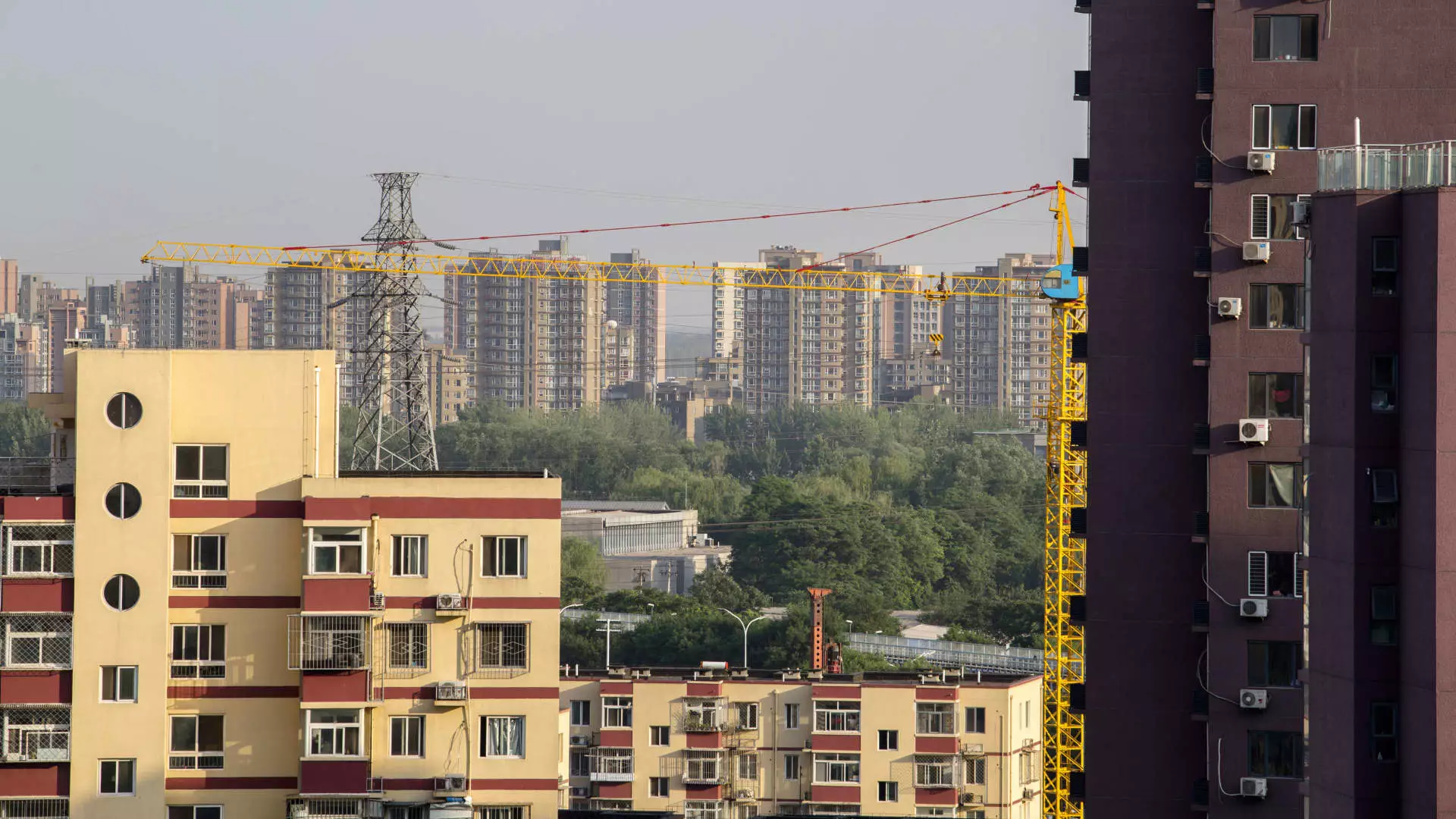In an effort to rejuvenate a beleaguered real estate sector, Chinese regulators unveiled a series of monetary easing measures aimed at alleviating the financial stresses faced by millions of homeowners. The property market, which has been grappling with an extended downturn, is crucial not only for individual families but also for the overall stability of the Chinese economy. Recent data highlights a stark contraction, with property-related investments plummeting over 10% in the initial months of this year compared to the last. Such figures underscore the urgency with which policymakers are approaching the need for prevention of further declines.
The People’s Bank of China (PBOC), under the guidance of Governor Pan Gongsheng, has taken decisive steps to address these challenges. The new measures include cutting interest rates on existing individual mortgages by an average of 0.5 percentage points and lowering the minimum down-payment ratio for second homes from 25% to 15%. This is the first occasion on which the down payment requirements for both first and second homes have been standardized, a move that seeks to streamline the purchasing process for prospective buyers.
The response from the market was swift and optimistic as property stocks surged following the announcement. The Hang Seng Mainland Properties Index registered a notable increase, rising by as much as 5%. Key real estate developers listed in Hong Kong, such as China Resources Land, Longfor Group Holdings, and China Overseas Land & Investment saw their shares rise significantly—by rates exceeding 4%—indicating a renewed investor confidence.
This bolstered sentiment is integral, as the psychological impact of market movements can often dictate future property purchases and investments. However, it raises questions about the sustainability of this momentum, especially in the face of concerns that prior measures have provided insufficient stimulation for a meaningful recovery.
Despite the palpable excitement in the market, analysts remain cautious. Industry experts, such as William Wu of Daiwa Capital Markets, caution that although lowering rates might alleviate existing burdens, it does little to generate demand for new homes. Wu aptly noted that the modifications could inadvertently decelerate the PBOC’s pace in lowering loan prime rates, which could be a critical lever for stimulating the economy further.
Additionally, Bruce Pang, JLL’s chief economist for Greater China, elaborated on the necessity of more comprehensive strategies that extend beyond interest rates. He highlighted the pressing requirement for effective support directed not only at homeowners but also at real estate developers. Strengthening the building blocks of the property market necessitates interventions that boost construction activities and foster property investment aimed at rebuilding confidence.
Bloomberg reports suggest additional considerations under discussion, such as the opportunity for homeowners to renegotiate their loan terms and potentially refinance with alternative lenders—a first in many years. These measures could provide homeowners with a renewed sense of flexibility and financial relief. However, the efficacy of such strategies hinges on their execution and the broader economic context.
China’s leadership faces a multifaceted challenge as it works to navigate the intricacies of real estate recovery. Policymakers must strike a balance between short-term alleviation tactics and longer-term structural reforms that address the root causes of market fluctuations.
Ultimately, while the recent monetary easing measures signify government intent to stabilize the property market, their success will be contingent on complementary strategies that address the comprehensive spectrum of challenges facing the sector. As homeowners and investors alike await tangible results from these efforts, the importance of responsive and adaptive policy-making has never been clearer.


Leave a Reply